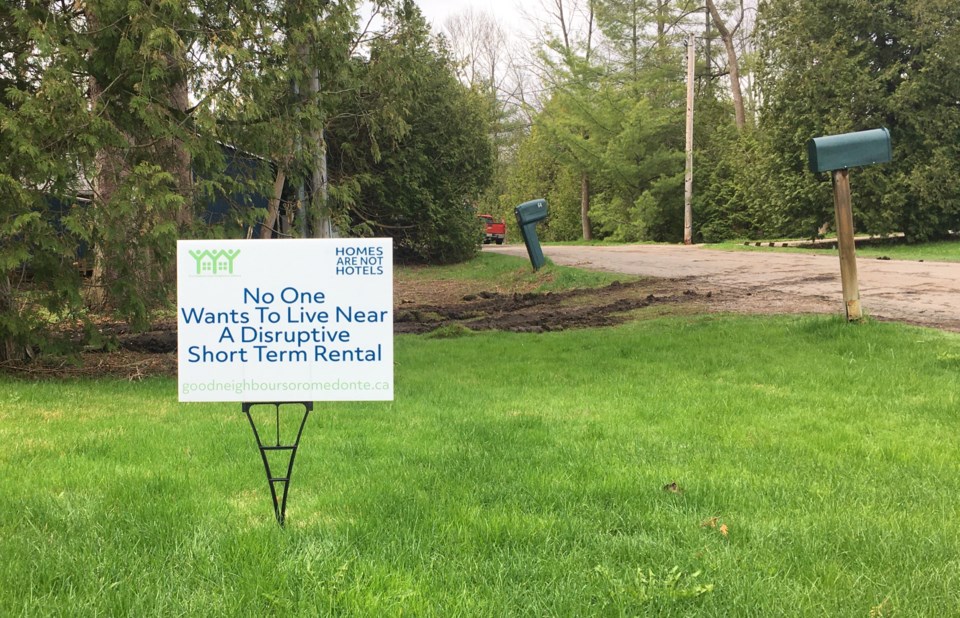A 2020 bylaw to regulate short-term rentals (STRs) in Oro-Medonte Township "did not represent good planning," would not solve the problem and would make renting “benign” family cottages illegal, the Ontario Land Tribunal declared in its reasons released Wednesday, following an oral decision last spring.
Tribunal vice-chair Sharyn Vincent revoked the bylaw to amend existing zoning in her original March decision. The township had been trying to regulate short-term rentals in response to complaints that some had been extremely disruptive in residential neighbourhoods, particularly along the Lake Simcoe shoreline.
During the past several years, the township has received complaints of disturbances at homes rented out largely on the waterfront which attract weekend-long revellers often in neighbourhoods largely made up of full-time residents. Many of these are advertised on Airbnb or other online platforms.
Unlike traditional bed-and-breakfast accommodations, there is no owner on site, leading to the often-used moniker “ghost hotels.”
Municipalities across the province have struggled with similar issues.
In her six-page reasons for the decision released this week, Vincent said there was nothing preventing the municipality from enforcing the existing zoning regime against the disruptive offenders and commercial operators.
The problem, she said, was that the 2020 amending bylaw defined short-term rentals as being those renting out for 28 days. The result, Vincent determined, meant that it captured more than just the weekend party houses.
“(It) would unintentionally capture the historically acceptable, bona fide one- to two-week cottage rental for the annual vacation which were not the disruptors subject of the study carried out,” Vincent wrote.
“Not only would the amendment have created unintended consequences, it in fact would have introduced a new prohibition under the guise of a clarification, despite the assertions of the township and the alliance (residents’ organization)," she added.
Barry Sookman, president of the Oro-Medonte Association for Responsible STRs, which challenged the bylaw, says the reasons illustrate that an outright ban on short-term rentals will have unintended consequences.
He said it also suggests that zoning alone is not an adequate solution that it calls for a licensing regime.
“I think that sets a useful direction to Oro-Medonte and perhaps other townships about what is the appropriate approach to regulating short-term rentals in Ontario,” Sookman said.
Oro-Medonte Township spokesperson Jenny Legget said the municipality has received the written reasons for the decision and is in the process of reviewing it.
Since the spring decision, the township received a staff report and a draft licensing bylaw, which was followed by an open forum, but did not move forward with a licensing system for legally operating short-term rentals. But, it added, council is still open to the idea.
Meanwhile, Oro-Medonte Township had indicated it intended to appeal after Vincent released her oral decision last spring. Given that she declared the contentious bylaw to be bad planning in her written reasons, Sookman expects the township will have no success taking it further.
“It would be time for everybody to sit down and try to come to a reasonable solution on this,” Sookman said. “It will take courage by ratepayers who wanted a total ban to realize that approach is not the one that’s going to be productive, that’s going to solve anything and the better solution is to look for something that will work and will help solve the problem.
“My hope in all this is not to keep fighting. … I’m hoping that they’ll get the message that this is a strong signal to move on and that everybody should try to work together to get a solution that works for the community," he added.
